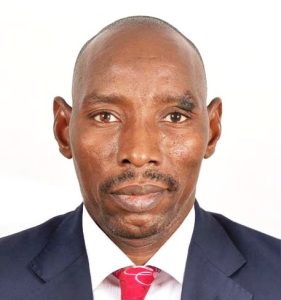
ADOUM IDRISS ADOUM is a highly motivated and creative research scholar who has been conducting extensive research on the United States & the Global Nuclear Regime at the School of International Relations and Politics, Mahatma Gandhi University, Kottayam. Under the guidance of Dr. C. Vinodan, he completed his MA in Politics and International Relations from the School of International Relations at MG University. Holding an M.A. in International Relations and Politics, he possesses a solid academic foundation that equips him with the necessary skills and knowledge to analyse complex political issues. His educational background also includes coursework in research methodology, which further enhanced his ability to conduct rigorous and reliable research. Additionally, he has actively participated in conferences and workshops, allowing him to stay updated with the latest developments in the field and engage in fruitful discussions with fellow scholars. His commitment to politics and international relations is evident through his involvement in various political organisations and advocacy groups. He has volunteered for campaigns, organised events, and even interned at a government office, gaining practical experience and a deep understanding of the inner workings of the political landscape. His passion for promoting social justice and equality drives him to continuously expand his knowledge and contribute positively to the field of politics and international relations.
UNITED STATES AND GLOBAL NUCLEAR REGIME: A STUDY OF OBAMA AND TRUMP ADMINISTRATION
The nuclear weapon is one of the most terrifying and dangerous weapons of mass destruction ever invented, and it poses a security threat to nations today. It has emerged as the world’s greatest security challenge to nations. The rising number of states with nuclear capability is a disturbing prospect, particularly as many pursue such capabilities without the approval of the “traditional” nuclear powers. In 1968, the Nuclear Non-Proliferation Treaty tried to stop the spread of nuclear weapons. At the time, only five states had nuclear weapons: the United States, the Soviet Union, Great Britain, France, and China, all of which had a permanent seat on the United Nations Security Council. Nearly every country in the world signed the treaty, thereby agreeing not to seek or spread nuclear weapons. Despite the United States’ prevention of other countries from acquiring or developing nuclear weapons, a few states have acquired and developed nuclear weapons, such as India and Pakistan, and, most recently, North Korea and Iran are also fighting to enter the circle of nuclear states. The issue of nuclear proliferation is of great concern to the United States. Since its creation in the 1940s through the Manhattan Project, the atomic bomb has been the bane of society in terms of the potential threat it holds for the international community